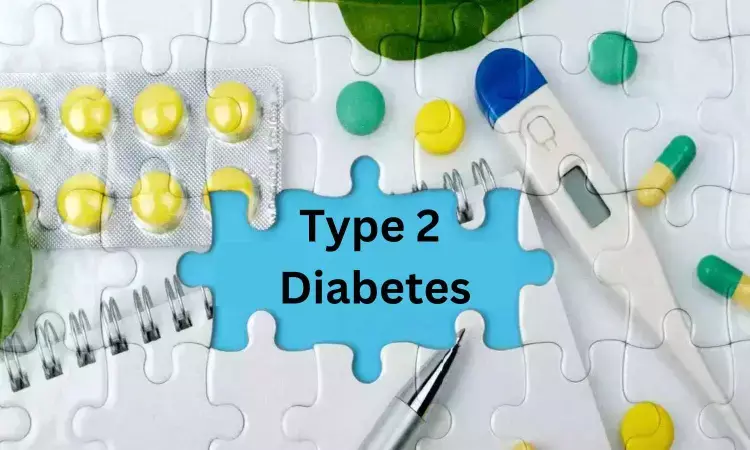- Home
- Medical news & Guidelines
- Anesthesiology
- Cardiology and CTVS
- Critical Care
- Dentistry
- Dermatology
- Diabetes and Endocrinology
- ENT
- Gastroenterology
- Medicine
- Nephrology
- Neurology
- Obstretics-Gynaecology
- Oncology
- Ophthalmology
- Orthopaedics
- Pediatrics-Neonatology
- Psychiatry
- Pulmonology
- Radiology
- Surgery
- Urology
- Laboratory Medicine
- Diet
- Nursing
- Paramedical
- Physiotherapy
- Health news
- Fact Check
- Bone Health Fact Check
- Brain Health Fact Check
- Cancer Related Fact Check
- Child Care Fact Check
- Dental and oral health fact check
- Diabetes and metabolic health fact check
- Diet and Nutrition Fact Check
- Eye and ENT Care Fact Check
- Fitness fact check
- Gut health fact check
- Heart health fact check
- Kidney health fact check
- Medical education fact check
- Men's health fact check
- Respiratory fact check
- Skin and hair care fact check
- Vaccine and Immunization fact check
- Women's health fact check
- AYUSH
- State News
- Andaman and Nicobar Islands
- Andhra Pradesh
- Arunachal Pradesh
- Assam
- Bihar
- Chandigarh
- Chattisgarh
- Dadra and Nagar Haveli
- Daman and Diu
- Delhi
- Goa
- Gujarat
- Haryana
- Himachal Pradesh
- Jammu & Kashmir
- Jharkhand
- Karnataka
- Kerala
- Ladakh
- Lakshadweep
- Madhya Pradesh
- Maharashtra
- Manipur
- Meghalaya
- Mizoram
- Nagaland
- Odisha
- Puducherry
- Punjab
- Rajasthan
- Sikkim
- Tamil Nadu
- Telangana
- Tripura
- Uttar Pradesh
- Uttrakhand
- West Bengal
- Medical Education
- Industry
SGLT2 inhibitors, metformin tied to prolonged survival in type 2 diabetes compared to other drugs

Switzerland: A recent study has shown that current first-line antidiabetic medication, SGLT2 inhibitors, or metformin, raises the survival probability compared to matched individuals with diabetes using other antidiabetic drugs. Only people taking SGLT2 inhibitors experienced increased survival versus those without type 2 diabetes (T2D).
These findings suggest using specific antidiabetic compounds as a preventative strategy to promote healthspan not only in patients with type 2 diabetes but also in middle-aged to elderly nonT2Ds. The study was published on medRxiv.com as a preprint and has yet to be peer-reviewed.
"Metformin treatment was significantly linked with reduced mortality in type 2 diabetes patients compared to treatment with other antidiabetes drug classes. Still, metformin failed to produce survival rates that matched people without diabetes," Elisa Araldi, Swiss Federal Institute of Technology (ETH) Zürich, Schwerzenbach, Switzerland, and colleagues reported.
Treatment with SGLT2 (sodium-glucose cotransporter) inhibitors was also significantly associated with increased survival compared to other glucose-lowering medications. Survival of type 2 diabetes on SGLT2i treatment approximated that of people without diabetes, and also the treatment was linked with significantly lower cancer-related mortality.
In a prospective population-based study, Araldi and the team investigated the mortality risk linked to prescribing different antidiabetic medication classes.
In the analyses, the authors included 410 389 of the 502 536 participants in the UK Biobank with covariate data, prescription and clinical records. Forty-three thousand six hundred ten were diagnosed with type 2 diabetes. A nearest neighbour covariate matching (NNCM) algorithm was applied to match cohorts of antidiabetic medication class users to minimally differing control cohorts diagnosed with type 2 diabetes or without.
The primary outcomes of the study were all-cause mortality and causes of death.
The authors reported the following findings:
- During a median of 12.2 years of follow-up, 3.3% of individuals died.
- After applying NNCM, participants with T2D on metformin (average hazard ratio 0.39) or SGLT2I (average hazard ratio 0.58) have an increased survival probability compared to matched individuals with T2D.
- Compared to matched individuals without T2D, the survival probability of individuals with T2D increases only if prescribed SGLT2I (average hazard ratio 0.31).
- NNCM-based analysis of matched individuals with T2D on both SGLT2I and metformin versus metformin only reveals increased survival in the presence of SGLT2I (average hazard ratio 0.29), also when compared to matched identical individuals without T2D (average hazard ratio 0.05).
- All the other antidiabetic drugs analyzed are either detrimental in prolonging lifespan (insulin, thiazolidinediones, and sulfonylureas) or have no effect (DPP4 inhibitors and GLP1 receptor agonists).
"Metformin and SGLT2i users had a considerable survival advantage compared to noT2D or metformin-only users compared to noT2D," the authors concluded.
Reference:
Effects of antidiabetic drugs on mortality risks in individuals with type 2 diabetes: A prospective cohort study of UK Biobank participants. Elisa Araldi, Catherine R. Jutzeler, Michael Ristow. medRxiv 2023.05.19.23290214; doi: https://doi.org/10.1101/2023.05.19.23290214
Dr Kamal Kant Kohli-MBBS, DTCD- a chest specialist with more than 30 years of practice and a flair for writing clinical articles, Dr Kamal Kant Kohli joined Medical Dialogues as a Chief Editor of Medical News. Besides writing articles, as an editor, he proofreads and verifies all the medical content published on Medical Dialogues including those coming from journals, studies,medical conferences,guidelines etc. Email: drkohli@medicaldialogues.in. Contact no. 011-43720751


